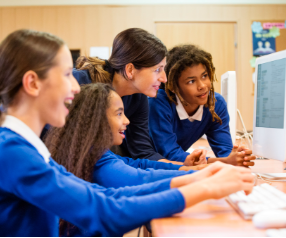In today’s information-rich world, knowing how to research effectively online is more important than ever. Whether you’re a student attending virtual classes, a professional pursuing certification, or a curious lifelong learner, developing strong digital research skills can boost your confidence and success in any subject area.
Why Digital Research Skills Matter
Digital research skills go beyond just typing a question into a search engine. They include knowing how to:
Locate credible and relevant sources
Evaluate information for accuracy and bias
Organize your findings
Cite sources properly
These abilities help learners avoid misinformation and make smarter decisions—whether they’re working on a school project or exploring a personal interest.
Tips to Strengthen Digital Research Skills
1. Start with Reliable Sources
Not all websites are created equal. Begin your search with reputable databases, educational websites, or government portals. Websites that end in .edu, .gov, or .org are often more trustworthy than others.
2. Use Specific Keywords
Instead of searching for “climate change,” try “effects of climate change on coastal cities 2025.” The more specific your keywords, the more relevant your results will be.
3. Evaluate What You Find
Before using any information, ask yourself:
Who wrote this?
When was it published?
What is the purpose of the content?
If the answers raise any red flags, keep digging.
4. Take Notes and Stay Organized
Digital research often leads to open tabs, scattered notes, and bookmarked pages. Use tools like Google Docs, Evernote, or Notion to keep everything in one place and label sources clearly.
5. Practice Proper Citations
Give credit where it’s due. Whether you’re quoting directly or paraphrasing, always cite your sources. This promotes academic honesty and strengthens your arguments.
Encouraging Digital Literacy in Learning
Educators and institutions can support the development of digital research skills by integrating them into assignments, offering mini-lessons, and guiding learners through the research process step-by-step. Encouraging students to reflect on how they find and use information also builds critical thinking.
Final Thoughts
As more learning happens online, digital research skills are becoming a foundational part of education. By learning to navigate digital spaces thoughtfully and critically, learners of all ages can empower themselves with reliable knowledge—and use it to make a real difference in their academic or professional journey.














